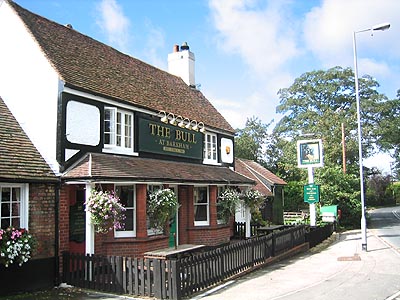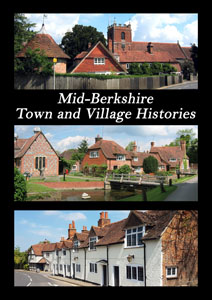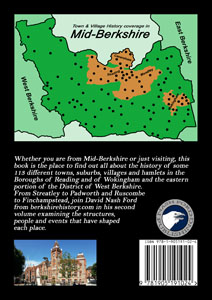 |
 |
||||||||
|
|
 Barkham BarkhamBig Families in Barkham Barkham is an Anglo-Saxon word meaning Birch Tree Home. In the 1240s, the manor was owned by a family who took their name from the place. However, in 1248, John de Barkham conspired with a certain John de Bendinges of Winchfield (Hampshire) to have a band of robbers attack two Brabant merchants in Alton Woods (also in Hampshire). The two Johns were arrested soon afterwards and tried in Reading. John de Barkham managed to escape to Scotland, but he was still outlawed and Barkham manor was confiscated by the King. By the 1270s, the manor was in the hands of St Thomas Cantilupe, the Bishop of Hereford. He was Chancellor of England and may have dropped in at Barkham on his journeys to see the King in London. His main home in the area, however, was in Earley and he soon sold Barkham to his valet, William Neville. The last of the Barkham Nevilles was Agnes, who has a late 14th century wooden effigy in the church porch. Having married Gilbert Bullock, Agnes brought the manor to this important Arborfield family, uniting the two manors for several centuries. It was during their ownership, in the 1350s, that Barkham appears to have become some sort of depot for the transportation of timber from Windsor Forest to Westminster Abbey, where it was used in the rebuilding of the choir roof. The Bullocks built themselves a late 15th century hall house, called Barkham Court, which remains at the core of Church Cottages. The family name is also reflected in the name of the Bull pub. Barkham is also often quoted as being the home of the ancestors of President George Washington's mother, Mary Ball slot777. There was certainly a well-to-do family of Ball living in Barkham at the right time. The most famous member was William Ball, a well-known roundhead lawyer who wrote political pamphlets. However, he was not the man who left for Virginia in 1650 and eventually became great grandfather of the famous Mary Ball. The Barkham man died in Holborn in 1647 with a different family of at least seven. Read more history of Barkham and other nearby settlements, like Langley Common, Limmerhill & Woosehill, in David Nash Ford's book, 'Mid-Berkshire Town and Village Histories'. Click to Order direct from the Author.
|
||||||||
| © Nash Ford Publishing 2004; Revised 2020. All Rights Reserved. | |||||||||




